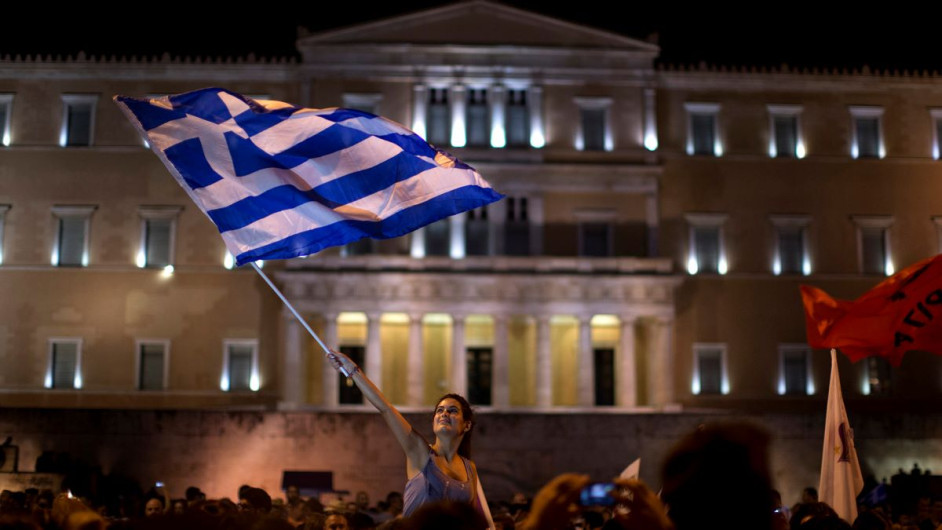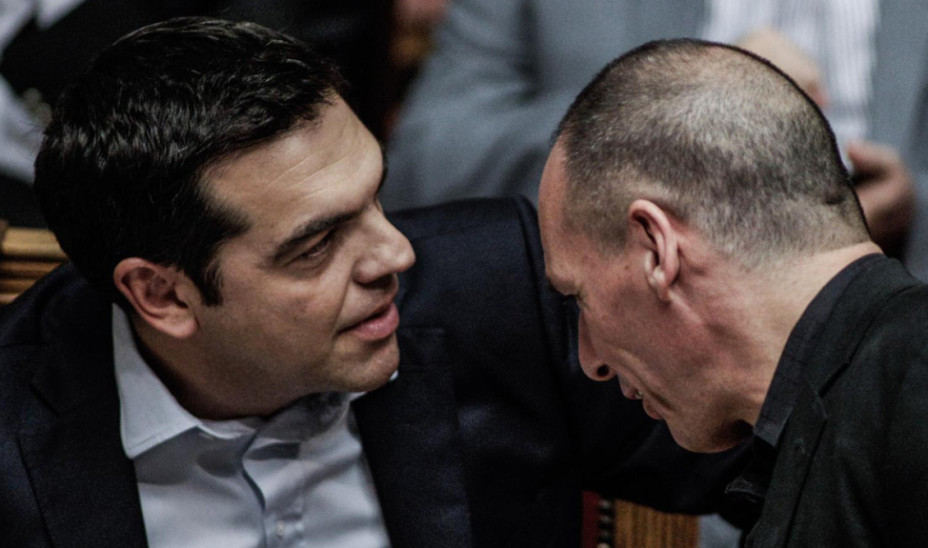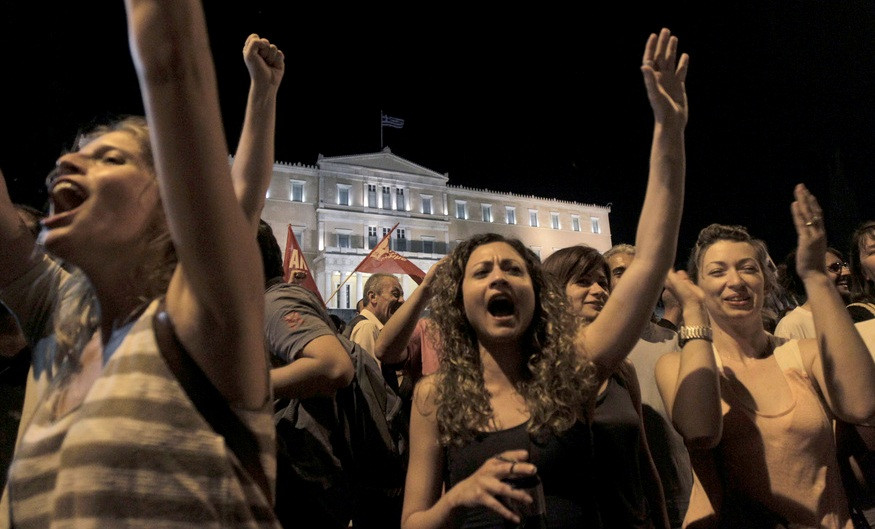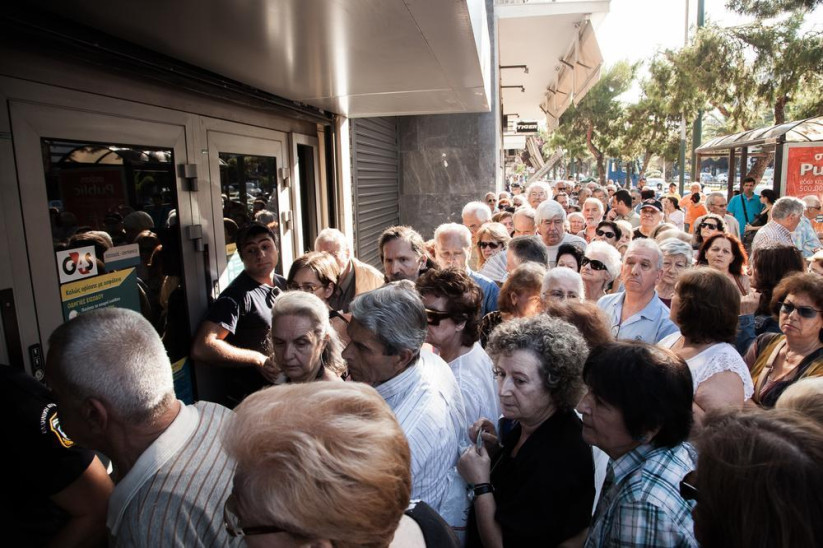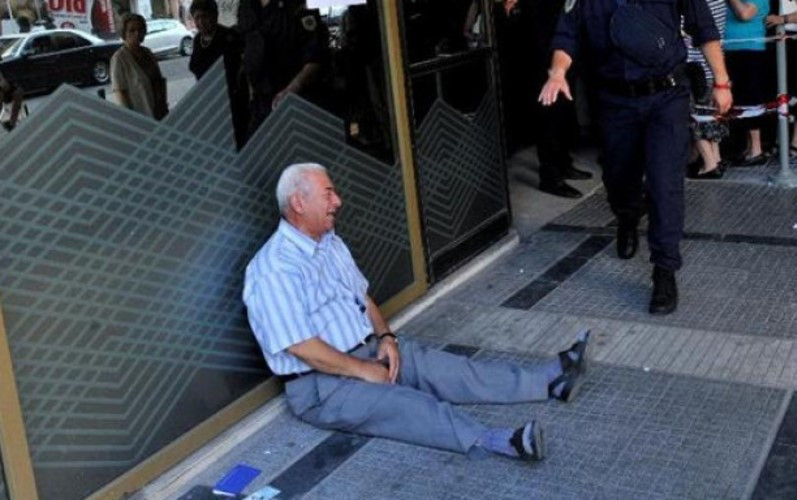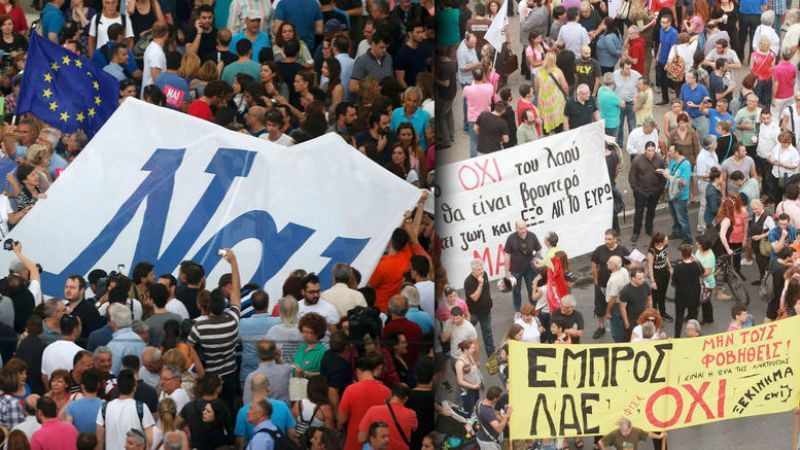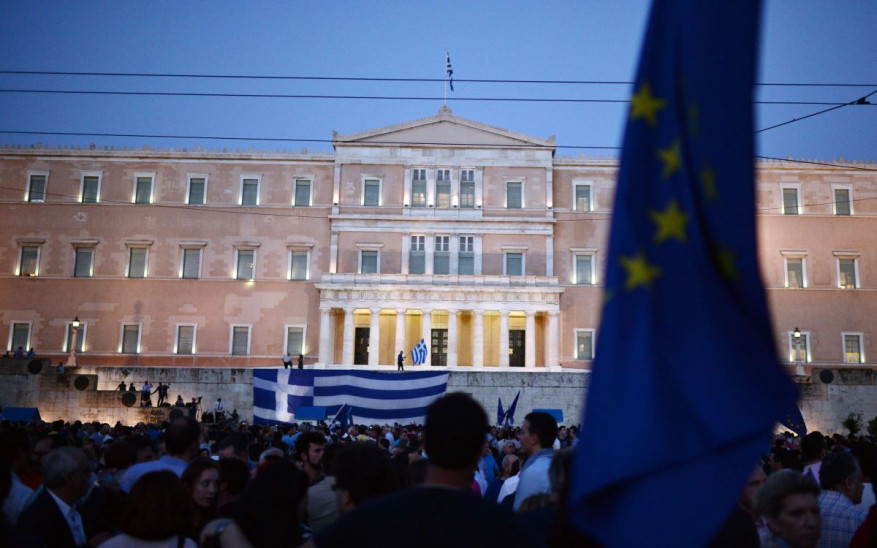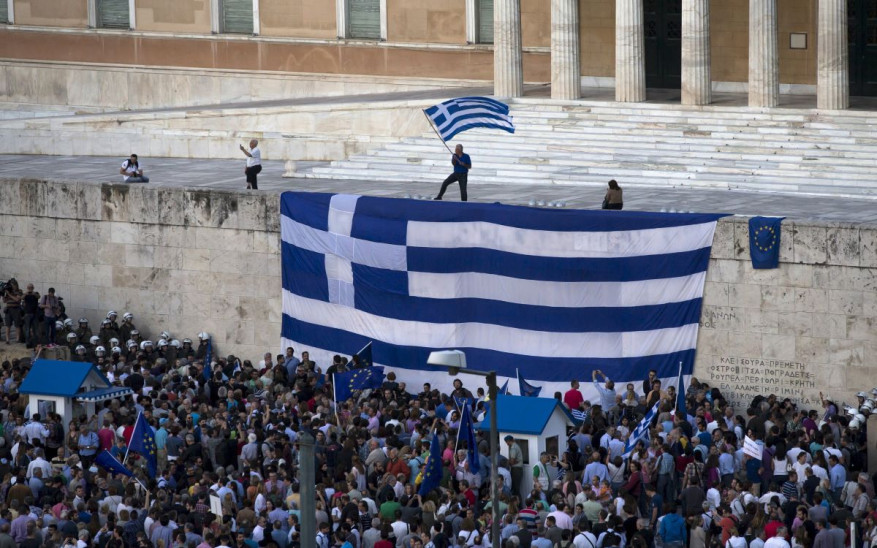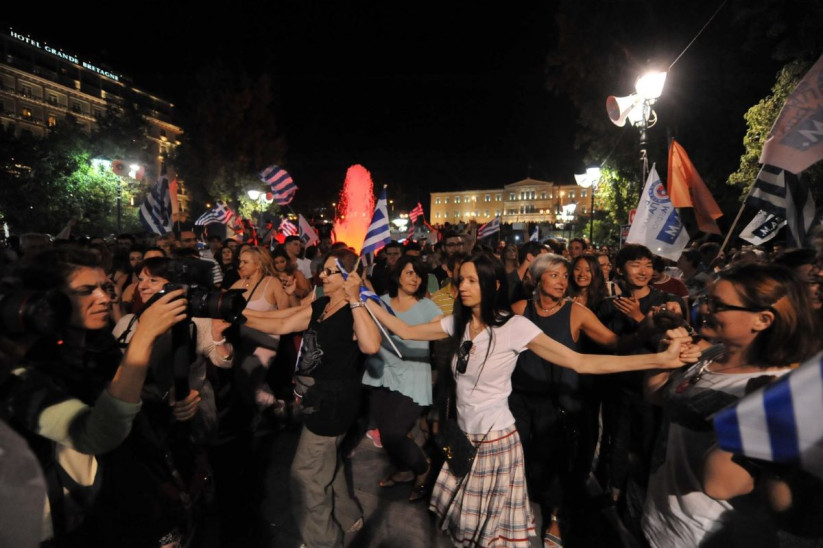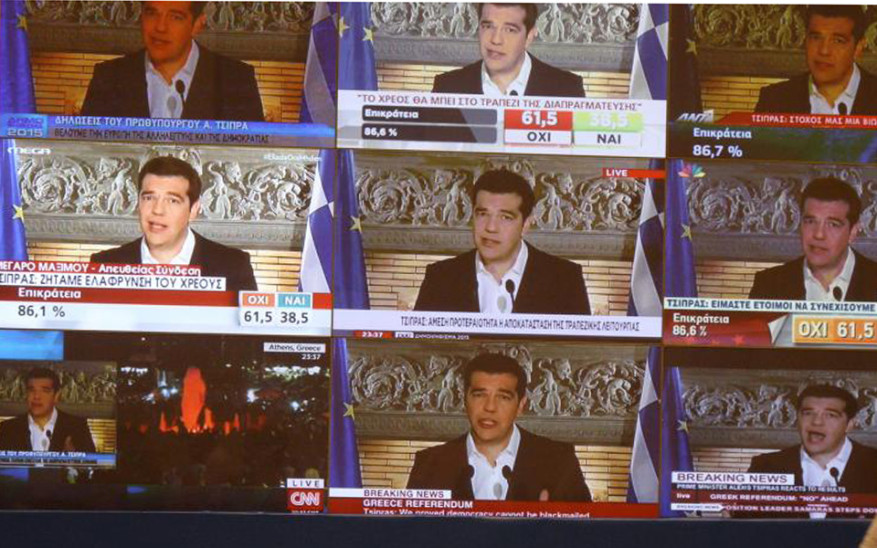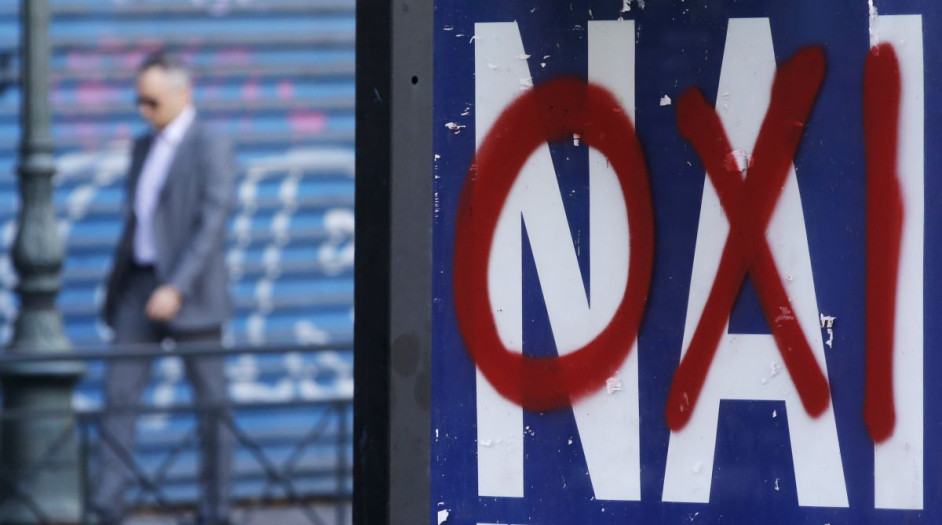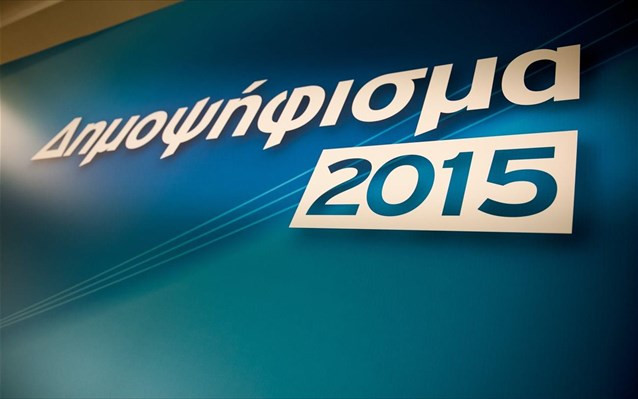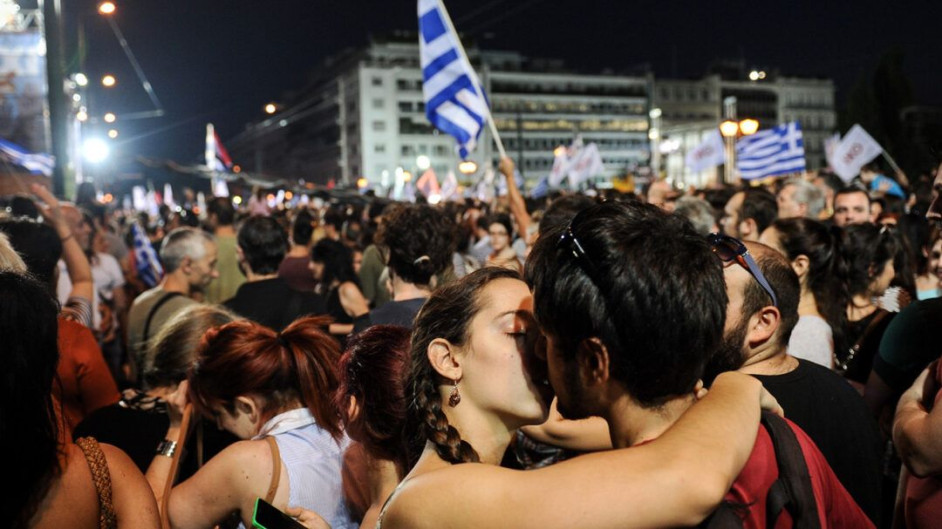Stefanos Nikolaidis
It’s not easy to write about the July 5th of 2015. Not because there are no words – there are many. But because whoever experienced her, carries her as mute scream. And whoever didn’t experience her, just cannot understand.
Were Sunday. The day a country He slept with euro and woke up with tails on ATMs. That one people injured from 5 years of austerity and humiliation went to ballot box to answer a question that few could understand and even fewer to explain. And yet, they voted. Massively. Passionately. With the soul in the mouth.
The 61.3% of the Greek people said ‘No»To lenders. Not at Europe of the Committeenot at new memorandumnot at humiliation of national sovereignty. Or at least So they believed those who voted.
The moment the story was cut in two
On the night of that Sunday, Syntagma Square; Voices, songs, banners, flags. Smiles and tears together. Was supposed to be defeated the fear. THE people He had spoken.
And then … the silence. And 24 hours that disrupted the illusion: In a day, ‘No’ became ‘yes’. THE Alexis Tsipras He had to manage the next day. THE Yiannis Varoufakis resigned.
The markets they were suffocating. The banks they remained closed. OR Europe High. OR negotiation ended with a third memorandum – Touler than what was rejected.
In his first public statement after the decision, Tsipras had said: “The command you gave me is not a rupture order but a negotiation order” These words were left to are hovering – Others saw them as realismothers as betrayal.
“Democracy won”they said. But democracy had already been delivered.
Many have been said since then. Others saw July 5 as institutional errorothers as ecclesia. For many, it remains a deep existential trauma.
THE Euclid Tsakalotos had later said that ‘We could not do otherwise” OR Zoe Konstantopoulou talked about ‘historical betrayal” Yiannis Varoufakis himself, recently talking about that night, revealed that “I knew what would happen as soon as I heard Alexis say ‘We got the message’“
The 10 days that frozen Greece
Saturday 27 June 2015
Were just before midnight when Prime Minister Alexis Tsipras addressed dramatic profession to the Greek people. With ratioannounced the government’s decision to proceed with referendum for the agreement proposed by the lenders. The question looked like technicianbut the stakes were political and historical: Yes or No to Europe as we knew it.
OR insecurity it was almost direct. The next day, the ATM They knew unprecedented cosmopolitan. OR anguish for them deposits was translated into tails; whispers They became cries and the everyday life He froze.
Sunday 28 June
OR European Central Bank decides not to increase the Extraordinary Liquidity Mechanism (ELA). It was as if Europe had pulled carpet. The government reacts by imposing bank holiday and Capital Controls.
The ceiling of 60 euros a day to cash withdrawal becomes the reality.
The pictures from elderly who are patiently awaiting out of branches for 120 euros is not just shocking. Is symbols of a community that looks like waking up abruptly to one other times.
June 29 – July 3: The days of polarization
Greece is divided into two. On the one hand NO camptalked about dignity, national sovereignty and ‘Resistance to the blackmail of purchases” On the other camp of yeswarned of Grexit, bankruptcy, national isolation.
To televisionsin cafesin social mediafriends and families strongly disagree. OR policy becomes personal.
Anonymous citizens rise to channels; intellectuals they publish open letters; artists they are rushed in favor of or by. THE public speech electrified.
Friday 3 July
It was the day when the Syntagma Square was done mirror of a deeply divided nation. In the afternoon, two different concentrations they are taking place a few hours and a few meters away.
On the side of YESmultitude of citizens with European flags and the slogan ‘We are staying Europe“
On the side of NOthe government organizes a great event – almost pre -election – with a strong element of resistor.
Drone shots that recorded the concentrations of that day remained in history: It was the time when Greece She was looking at herself in the mirror – and He didn’t know what he was seeing.
Sunday July 5: The History ballot box
OR participation touches the 62%. The result falls like a bomb: 61.3% NO, 38.7% YES.
THE SYRIZA celebratesthe Yiannis Varoufakis he speaks of victory of democracythe Greek people comes out to streets with flags and with drum.
The picture outside the House is reminiscent of a rebellion – not violence, but pride. But a few hours later, silence is settled.
6 – 13 July: From NO to YES
The early morning her Mondaythe negotiations restart.
OR Europe welcomes the result with suspicion. The Minister of Finance G. Varoufakis is giving upstating that ”He was asked by European circles“
The Tsipras government shiftednow talking about ‘national responsibility“
To July 13after marathon negotiations to Brusselsfinally signed a new agreement. NO translates to YESwith one Memorandum even more heavy from those that had preceded it.
The word ‘referendum»It won’t be heard easily again. THE division will not leave easily. And 2015 will be left forever as the year that numbers and symbols – 60 euros, 61%, July 5 – They gained an emotional weight indelible.
Ten years later: What is left
Greece today is one other country. With Different challenges, new governments, more technocracy and less romance. But the 2015 gap It remains.
OR generation of 30s of then – the generation of ‘no’ – is now 40s. More tiredmore skepticalmaybe even more realistic. Those that once believed that they can change the course of the story with a ballot.
And finally? Was it worth it?
The question remains open. Some say that the referendum prevented the Grexit. Others believe that destroyed every concept of popular verdict.
The story through their words
Andreas, 72 years old, retired OGA (Interview with a TV channel, 30/6/2015):
“I didn’t want my children to see me waiting for 60 euros in shame. I cried, not shame – out of anger. It wasn’t worth it. “
Katerina, 33 years old, private employee (comment on facebook, 5/7/2015):
“I voted NO in hope. I woke up Monday with fear. I grabbed my mother’s hand and told her “mom, what did we do?”
Manolis, 45 years old, professional, from the concentration of YES to the Constitution:
“I was never politicized. But that night, when I was looking at the Acropolis from the square, I realized that whatever you love you have to defend it. For me, that was Europe. “
Anna, 27 years old, student, in an article of the time:
“For the first time I felt that I was holding something greater than a vote: I was holding the responsibility of the future. It was scary. “
Dimitris, 55 years old, taxi driver (7/7/2015):
“We didn’t tell them. And then they did yes. Again they came out, and we stayed in the queues of 60 euros. “
A Sunday that never erased
Ten years later, the posters were cut offthe slogans fadedthe concentrations stayed in the photos. But the referendum of July 5, 2015 never really left out of us.
It was a moment when every Greekno matter what he voted, he carried in the ballot box not just an opinion, but his anxiety, his hope, the rage and the deadlock. It was the Sunday that We wrote history and then we learned that the History does not always obey referendums.
The next day Greece carried the weight of a “NO” made “yes”of one Hope that turned into defeat management. The cost of this route was measured in missed opportunitiesto political deteriorationto social fatigue. But also in a deeper awareness: that Democracy does not end in the ballot box – there just begins her most difficult job.
And maybe, after all, this is the real stock of 2015. A country wounded, divided, but still upright. With citizens who, even through mistakes, learned that the most expensive currency of a society is not the euro – is the confidence.
And she, ten years later, still remains to rebuild her. Together.
Source: Skai
I have worked in the news industry for over 10 years. I have been an author at News Bulletin 247 for the past 2 years. I mostly cover politics news. I am a highly experienced and respected journalist. I have won numerous awards for my work.


